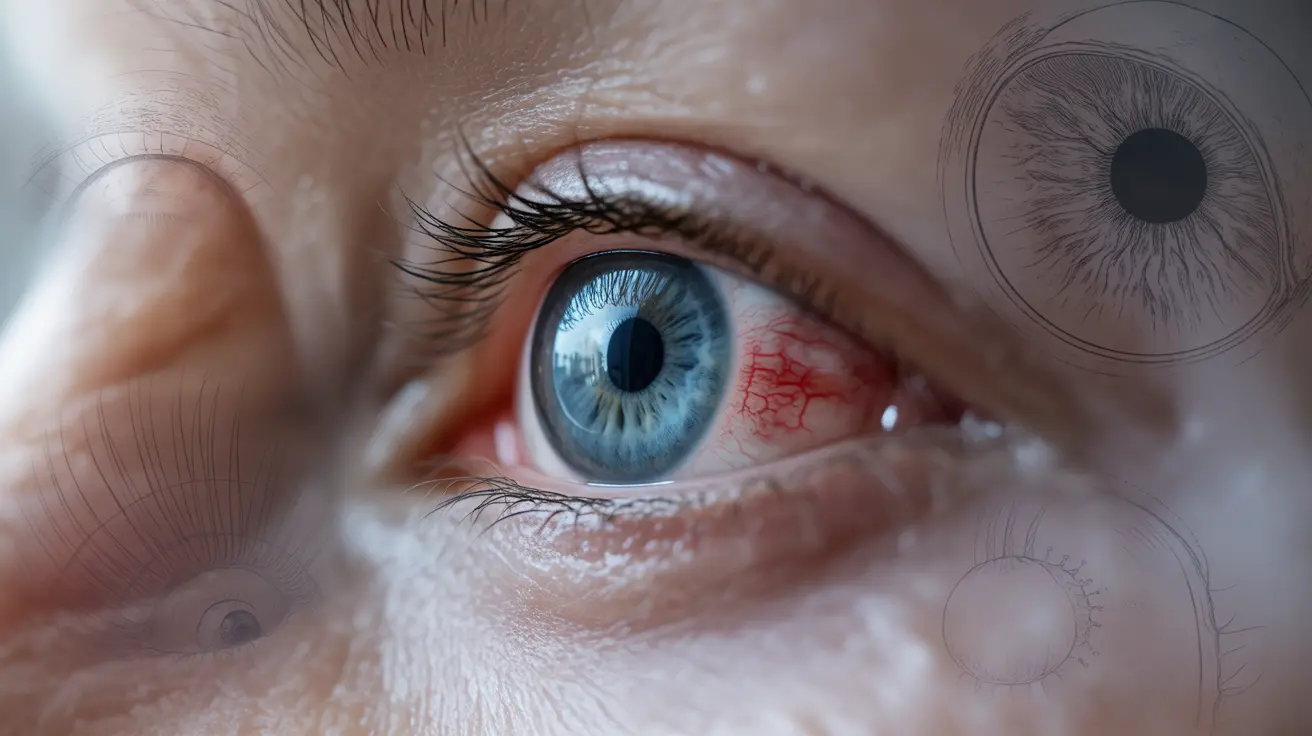Falling asleep with contact lenses is a common accident that can lead to serious eye health complications. While many contact lens wearers have done this at least once, understanding the risks and knowing how to respond is crucial for protecting your vision and eye health.
This comprehensive guide explores the potential consequences of sleeping with contacts, what to do if it happens, and how to prevent this common mistake from affecting your eye health.
Understanding the Risks of Sleeping with Contacts
When you sleep with contact lenses in, you're creating an environment where harmful bacteria can thrive. Contact lenses reduce oxygen flow to your cornea, and this situation becomes more dangerous during sleep when your eyes are already receiving less oxygen.
The combination of reduced oxygen and trapped bacteria significantly increases your risk of developing serious eye infections and other complications that could potentially damage your vision.
Common Eye Health Complications
Sleeping with contacts can lead to several eye health issues:
- Corneal ulcers
- Bacterial keratitis
- Eye inflammation
- Corneal neovascularization
- Conjunctivitis
- Permanent vision damage in severe cases
Identifying Warning Signs
After sleeping with contacts, you might experience several symptoms that indicate potential eye damage or infection:
- Redness and irritation
- Eye pain or discomfort
- Increased sensitivity to light
- Blurred vision
- Excessive tearing
- Feeling of something stuck in your eye
Emergency Response Protocol
If you wake up wearing contact lenses, follow these immediate steps:
- Carefully remove the contacts using clean hands
- Allow your eyes to rest without lenses for at least 24 hours
- Use preservative-free artificial tears to lubricate your eyes
- Monitor for any unusual symptoms
- Contact an eye care professional if symptoms persist
Safe Contact Lens Options
While regular contact lenses aren't designed for overnight wear, some specialized options exist:
- Extended-wear contact lenses (FDA-approved for overnight use)
- Continuous wear lenses (approved for up to 30 days)
- Rigid gas-permeable lenses (better oxygen permeability)
However, even with these options, eye care professionals often recommend removing contacts before sleep to minimize risk.
Prevention Strategies
To avoid accidentally sleeping with contacts, consider these preventive measures:
- Set a consistent nightly routine for contact removal
- Keep contact solution and cases easily accessible
- Remove contacts before napping
- Consider switching to daily disposable lenses
- Keep backup glasses nearby
Frequently Asked Questions
What happens to my eyes if I fall asleep with contact lenses in?
When you sleep with contacts, your corneas receive significantly less oxygen, which can lead to swelling, inflammation, and increased risk of infection. The contacts can also trap harmful bacteria against your eye surface, potentially causing serious complications.
How much does sleeping in contact lenses increase the risk of eye infections?
Research shows that sleeping in contact lenses increases your risk of eye infections by 6-8 times compared to proper contact lens wear. This risk increases with each consecutive night of sleeping in contacts.
What are the common symptoms after sleeping with contact lenses?
Common symptoms include eye redness, pain, irritation, increased light sensitivity, blurred vision, and excessive tearing. These symptoms may indicate potential infection or corneal damage.
Are there any contact lenses approved safe for overnight wear?
Yes, extended-wear and continuous-wear contact lenses are FDA-approved for overnight use. However, eye care professionals often still recommend removing all types of contacts before sleeping to minimize health risks.
What should I do if I accidentally sleep with my contact lenses in?
Remove the contacts carefully with clean hands, let your eyes rest without lenses for at least 24 hours, use artificial tears for comfort, and monitor for concerning symptoms. If you experience pain, redness, or vision changes, consult an eye care professional immediately.




